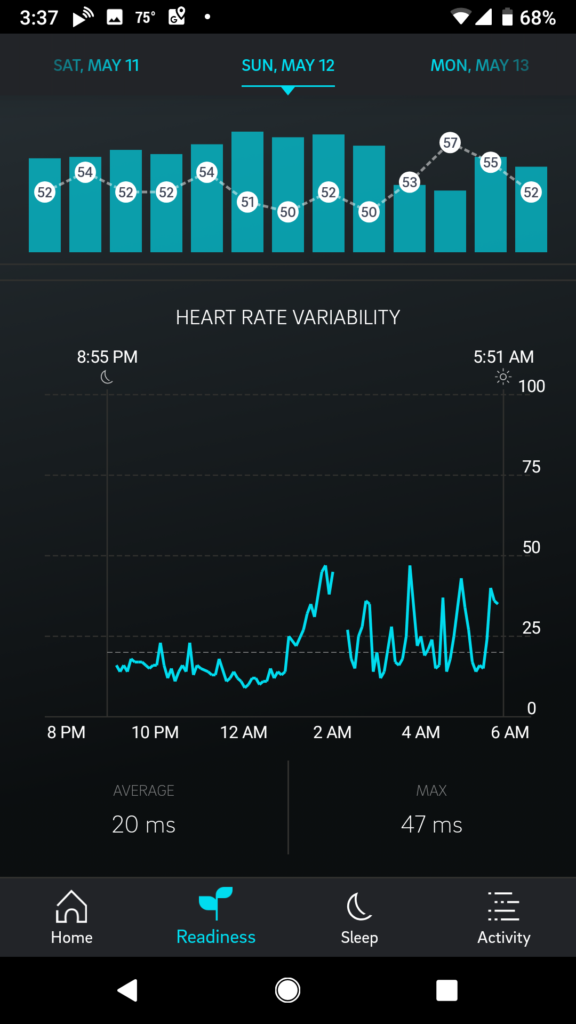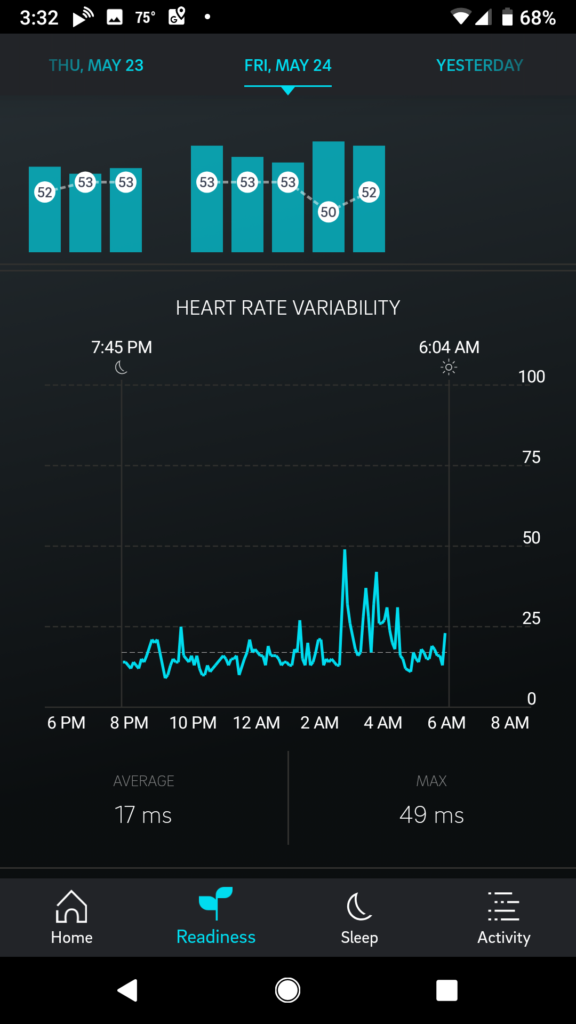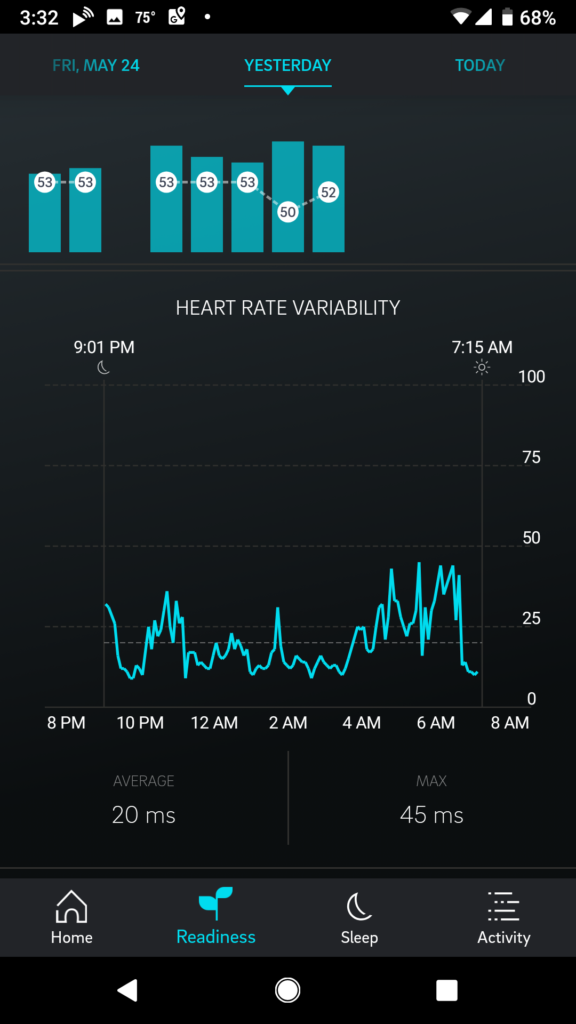HRV (Heart Rate Variability) is one of the metrics that the Oura ring tracks. I’ve begun to learn a bit about it, and thought I’d share what I’ve learned so far, and then share a small personal observation.
Very briefly, HRV has to do with the variations in the timings between heart beats. If your heart rate is 60 beats per minute then about one second will pass from one heart beat to the next—but only about one second. In actual fact, sometimes it will be a few milliseconds more, and other times it will be a few milliseconds less. Those “more or less” amounts are your heart rate variability or HRV.
Most of what I know about the HRV comes from an interview on Human OS Radio podcast with Phyllis Stein, Director of the Heart Rate Variability Laboratory at the Washington University School of Medicine in St. Louis, called Introduction to Heart Rate Variability (HRV). It’s definitely worth a listen, if you do the podcast thing.
A lot of HRV is related to respiration. I noticed this when I got my first heart rate monitor thirty years ago: Every time I inhaled my heart rate speeded up, and every time I exhaled my heart rate slowed down. This effect is pronounced enough that the Oura ring can calculate your respiration rate just by watching your heart rate speed up and slow down with each breath.
HRV is widely used as an indicator of the balance between your parasympathetic and sympathetic nervous systems: If your parasympathetic nervous system is functioning well you’ll see quite a bit of variation. When it’s not functioning well—for example, when you’re persistently stressed—the amount of variation in your heart rate will decline.
Since I got my Oura ring, I’ve been tracking my HRV, looking to see if this or that bit of self-care practice will increase it, and I’ve noticed one thing that seems kind of interesting: Very often my HRV will be quite low in the first half of the night, and then be higher (and with higher variability in the variations) in the second half of the night. Here are three recent examples:
I speculate that this is related to the fact that I’m still digesting supper at bedtime, or perhaps that alcohol I’ve consumed is not fully metabolized yet. I’ve been hoping that life would produce a natural experiment to test those two theories, but so far haven’t gotten one. (That is, days when supper or cocktail hour were very early or had to be skipped have also been days when some other factor—such as illness, an unusual bedtime, or unusual stress—confounded things such that I couldn’t really draw any conclusion about the effect on my HRV.)



